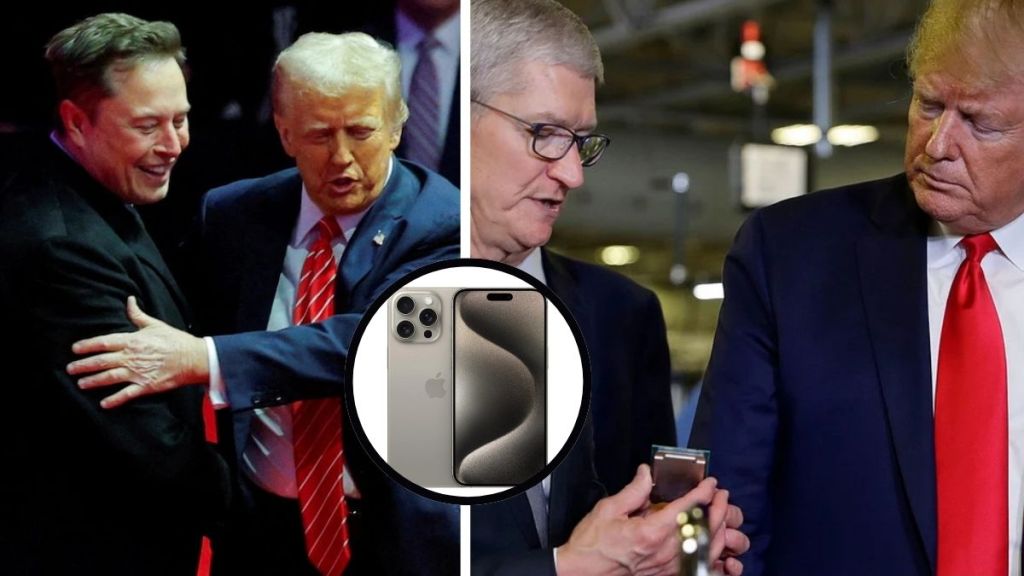President Donald Trump’s once-close relationship with Apple CEO Tim Cook appears to have soured, raising concerns over increased iPhone prices amid looming tariffs. The fallout follows Elon Musk’s departure from Trump’s inner circle and signals a broader shift in the president’s tech alliances.
During a recent trip to the Middle East, Trump sharply criticised Cook, accusing Apple of prioritising foreign manufacturing—particularly in India—over American jobs. Speaking in Qatar, Trump said, “I hear you’re building all over India. I don’t want you building in India,” after revealing that Cook had declined an invitation to join the White House delegation.
Later, while delivering a speech in Riyadh, Trump took a public jab at Cook, contrasting him with Nvidia CEO Jensen Huang, who accompanied the presidential team: “I mean, Tim Cook isn’t here, but you are.”
Days after the remarks, Trump fired off a scathing message on Truth Social, warning that any iPhones not manufactured in the U.S. would be subject to a 25% tariff. “If they’re going to sell it in America, I want it to be built in the United States,” Trump wrote. The move sent shockwaves through global markets, with Apple losing $640 billion in market value shortly after the announcement.
This abrupt policy shift stunned observers, given Cook’s long-standing role as the so-called “Trump whisperer” in Silicon Valley. The Apple chief previously pledged $500 billion in U.S. investments, including sourcing $19 billion in chips domestically and launching AI server production in Houston. But Trump’s escalating demands could derail those efforts.
Analysts warn that producing iPhones in the U.S. would drastically inflate costs due to higher labor expenses and a lack of skilled manufacturing workers. Bank of America estimates suggest that a domestically built iPhone 16 Pro Max could cost nearly $2,300—up 91% from its current price—while Wedbush Securities pegs the figure as high as $3,500 per unit.
To mitigate potential losses, Apple has begun shipping 1.5 million iPhones from India to the U.S. via chartered flights in a bid to get ahead of the tariff deadline, expected to kick in by the end of June.
The growing rift with Cook comes on the heels of Trump’s cooling relationship with Elon Musk. Once dubbed the “First Buddy,” Musk has publicly distanced himself from politics, telling the Qatar Economic Forum he plans to scale back political donations and activism: “I think I’ve done enough.”
Musk also voiced opposition to Trump’s tariff strategy, advocating instead for “zero tariffs” among key global trading partners. Despite once dominating Trump’s social media praise, Musk has gone unmentioned in Trump’s Truth Social posts in recent months, a stark contrast to the early days of their alliance.
As Trump ramps up his nationalist manufacturing agenda ahead of the election season, his feuds with Silicon Valley titans—first Bezos, now Cook and Musk—signal an unpredictable future for tech, trade, and consumers. If tariffs take effect, Americans could soon be paying steeply for their next iPhone.

